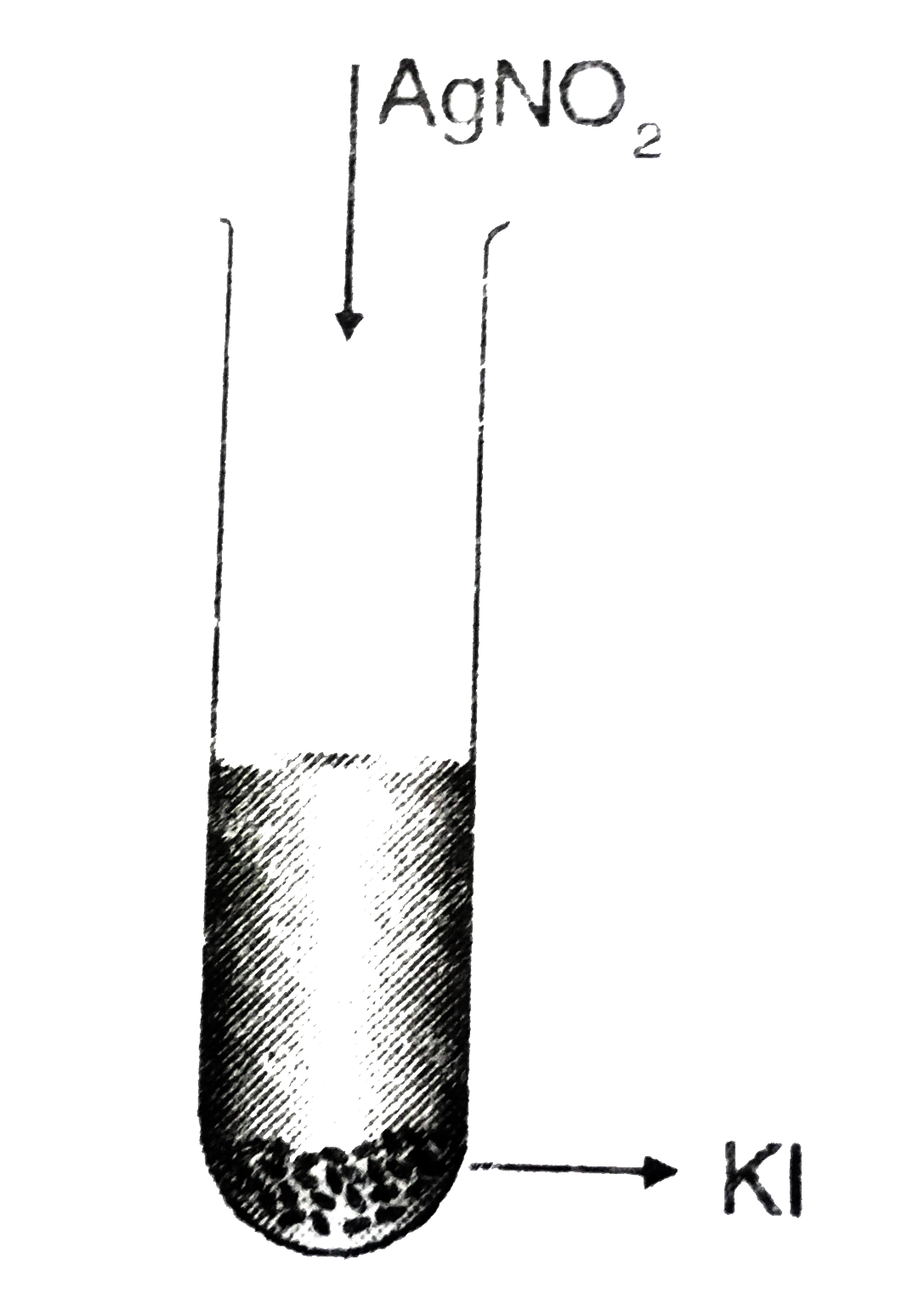Which of the following ionic substances will be most effective in precipitating the sulphur sol?
a. KCl
BaCl2
c. Fe2(SO4)3
d. Na3PO4
To determine which ionic substance will be most effective in precipitating the sulfur sol, we need to analyze the options based on the charge of the cations present in each compound.
1. Understanding Sulfur Sol:
- Sulfur sol is a negatively charged colloid. To precipitate a negatively charged colloid, we need a positively charged ion (cation).
2. Identifying the Cations:
- Let's break down the options:
- a. KCl: Contains K⁺ (potassium ion) with a charge of +1.
- b. BaCl₂: Contains Ba²⁺ (barium ion) with a charge of +2.
- c. Fe₂(SO₄)₃: Contains Fe³⁺ (ferric ion) with a charge of +3.
- d. Na₃PO₄: Contains Na⁺ (sodium ion) with a charge of +1.
3. Comparing the Charges:
- The effectiveness of a cation in precipitating a negatively charged colloid is directly proportional to its charge.
- K⁺ has a charge of +1.
- Ba²⁺ has a charge of +2.
- Fe³⁺ has a charge of +3.
- Na⁺ has a charge of +1.
4. Determining the Most Effective Precipitant:
- Among the cations, Fe³⁺ has the highest charge (+3), followed by Ba²⁺ (+2), and then K⁺ and Na⁺ (+1).
- Therefore, Fe³⁺ will be the most effective in precipitating the sulfur sol.
5. Conclusion:
- The ionic substance that will be most effective in precipitating the sulfur sol is Fe₂(SO₄)₃ (ferric sulfate), which corresponds to option c.
Final Answer:
The most effective ionic substance in precipitating the sulfur sol is c. Fe₂(SO₄)₃.
---
- Sulfur sol is a negatively charged colloid. To precipitate a negatively charged colloid, we need a positively charged ion (cation).
- Let's break down the options:
- a. KCl: Contains K⁺ (potassium ion) with a charge of +1.
- b. BaCl₂: Contains Ba²⁺ (barium ion) with a charge of +2.
- c. Fe₂(SO₄)₃: Contains Fe³⁺ (ferric ion) with a charge of +3.
- d. Na₃PO₄: Contains Na⁺ (sodium ion) with a charge of +1.
- The effectiveness of a cation in precipitating a negatively charged colloid is directly proportional to its charge.
- K⁺ has a charge of +1.
- Ba²⁺ has a charge of +2.
- Fe³⁺ has a charge of +3.
- Na⁺ has a charge of +1.
- Among the cations, Fe³⁺ has the highest charge (+3), followed by Ba²⁺ (+2), and then K⁺ and Na⁺ (+1).
- Therefore, Fe³⁺ will be the most effective in precipitating the sulfur sol.
- The ionic substance that will be most effective in precipitating the sulfur sol is Fe₂(SO₄)₃ (ferric sulfate), which corresponds to option c.
The most effective ionic substance in precipitating the sulfur sol is c. Fe₂(SO₄)₃.
Topper's Solved these Questions
- BOOK - CENGAGE CHEMISTRY ENGLISHCHAPTER - SURFACE CHEMISTRYEXERCISE - Illustration 5.361videos
SURFACE CHEMISTRY
- BOOK - CENGAGE CHEMISTRY ENGLISHCHAPTER - SURFACE CHEMISTRYEXERCISE - Solved Examples20videos
SURFACE CHEMISTRY
- BOOK - CENGAGE CHEMISTRY ENGLISHCHAPTER - SOLUTIONSEXERCISE - Ex 2.3 (Objective)9videos
SOLUTIONS
- BOOK - CENGAGE CHEMISTRY ENGLISHCHAPTER - SYNTHETIC AND NATURAL POLYMERSEXERCISE - Exercises Assertion Reasoning10videos
SYNTHETIC AND NATURAL POLYMERS
Similar Questions
which of the following is most effective in coagulating ferric hydroxide sol?
a. KCl
b. FeCl3
c. Na2SO4
d. K3[Fe(CN)6]View SolutionNa2CO3+PbSO4→PbCO3↓+Na2SO4
View SolutionWhich of the following is most effective in coagulating positively charged hydrated ferric oxide sol ?
(i) NaNO3 (ii) Na2SO4 (iii) (NH4)3PO4View Solution(a) A colloidal sol is prepared by the given method in figure. What is the charge of AgI colloidal particles in the test tube ? How is the sol formed, represented?
 (b) Explain how the phenomenon of adsorption finds application in Heterogeneous catalysis.
(b) Explain how the phenomenon of adsorption finds application in Heterogeneous catalysis.
(c) Which of the following electroytes is the most effective for the coagulation of Fe(OH)3 sol which is a positively charged sol?
NaCI,Na2SO4,Na3PO4View SolutionWhich one of the following electrolytes is most effective for the coagulation of Fe(OH)3sol and why?
NaCl,Na2SO4,Na3PO4View SolutionNa3PO4+Fe2(SO4)3→FePO4⏐↓+Na2SO4
View SolutionAmong the following electrolytes, which is the most effective coagulation agent for Sb2S3 solution?
(a)Na2SO4
(b)CaCl2
(c)Al2(SO4)3
(d)NH4ClView SolutionAnswer the following questions :
(i) Which of the following electrolytes is most effective for the coagulation of AgI/Ag+ sol ?
a. MgCl2,K2SO4,K4[Fe(CN)6]
(b) What happens when a freshly precipitated Fe(OH)3 is shaken with a little amount of dilute solution of FeCl3.
(c) Out of sulphur sol and proteins, which one forms macromolecular colloids ?View SolutionAluminium hydroxide forms a positively charged sol.
Which of the following ionic substances should be most effective in coagulating the sol?View SolutionThe particles of a particular colloidal solution of arsenic trisulphide (As2S3) are negatively charged. Which 0.0005 M solution would be most effective in coagulating this colloidal solution. KCl,MgCl2,AlCl3 or Na3PO4 ? Explain.
View Solution

